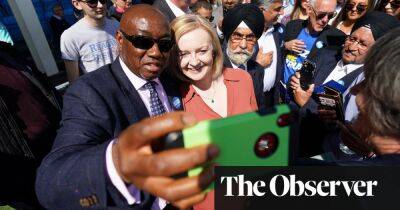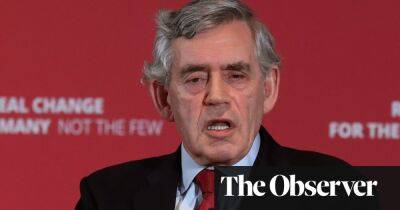The Guardian view on Tory supply-siders: unhelpful in a cost of living crisis
The UK isn’t going broke. More public spending – such as cheaper public transport and writing off student loans – can help counter price shocks. However, imaginative government action is unlikely to feature in a Tory leadership race dominated by austerity and trickle-down messages. Rishi Sunak is the torch-bearer for fiscal conservatism, with a message not to believe in his rivals’ “fairy tales”. They in turn cast the former chancellor as the Scrooge of British politics, insisting on lean budgets with tax increases to balance them. Britain seems caught between obsessive frugalists and reckless opportunists.
The Office for Budget Responsibility made headlines with claims last week that Britain faces an “unsustainable” debt burden. Yet this forecast is based on projections 50 years from now. It seems a little unrealistic to think future governments will not be able to head off such a scenario and restart economic growth. The OBR is in thrall to orthodox economics, which perhaps explains why it persists in an analysis that can cause needless alarm. The watchdog sets itself an arbitrary target of keeping national debt to 75% of GDP – the level it reached in March 2020 – by 2072. To achieve this, the OBR suggests spending cuts or tax rises worth £37bn every decade.
With such a recipe book, austerity becomes baked into economic management – echoing the Treasury view. The OBR adopts a self-imposed limitation that effectively treats nation states, fallaciously, like households that have to pay back their debts. But countries like Britain don’t set national budgets like ordinary families. The last budget surplus in the UK was in 2001. Since 1970, the average annual budget deficit has been 3.6% of GDP. To paraphrase John Maynard
Read more on theguardian.com






![Ethereum’s [ETH] latest breakout and what it means for you](https://finance-news.co/storage/thumbs_400/img/2022/8/7/36250_0j3x.jpg)













![Litecoin [LTC] buyers can deploy this strategy to remain profitable](https://finance-news.co/storage/thumbs_400/img/2022/8/6/36236_d8vl.jpg)
